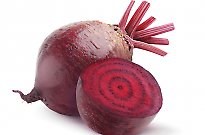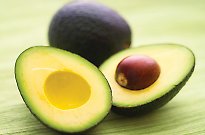
Love your liver with Dr Sandra Cabot

How to recognise & reverse fatty liver
Fatty liver is a condition that’s becoming an all-too common curse on Australians. Here, Dr Sandra Cabot shares her tips on how to recognise fatty liver and how to reverse it.
Do you think fatty liver is a largely ignored disease in comparison to heart disease and other illnesses?
Dr Sandra Cabot: Oh definitely. Fatty liver is totally underestimated in prevalence and significance. It’s almost always associated with being overweight and diabetes and it’s often the cause of high cholesterol and high blood sugar and the things that lead to heart disease.
Why do you think it has been so underestimated?
I don’t think people have really understood the liver in the past. Medicine is very specialised, so you can get endocrinologists and heart specialists and gastroenterologists, neurologists, rheumatologists, all that, but the fact the liver is one of the most important organs in the whole body in relation to its relationship to other systems and organs hasn’t been recognised, so it really is a new discovery in a way. There’s an article that’s just come out in the journals that diabetics must have their livers checked every 12 months because they’re at great risk of severe fatty liver disease, which will cause liver failure. In the past they’ve only had their eyes checked and their kidneys checked and their nervous system checked – the liver has historically been very neglected.
What are the main reasons we develop fatty liver?
The main reason is diet. People are eating a lot more carbohydrate and they’re exercising a lot less. People don’t eat as much protein as they used to – perhaps it’s too expensive or people are associating it with fat, so they’re reducing their meat intake and their intake of eggs and cheese. We’ve been educated to have a high carbohydrate diet, which we don’t really need unless we’re doing a lot of exercise. And I think polypharmacy – a lot of people are prescribed multiple drugs particularly as they get older – is another cause. All those different drugs damage the liver, like cholesterol-lowering drugs, painkillers, anti inflammatories and diuretics – overprescription of drugs. Another cause is exposure to toxic chemicals – there are a lot of chemicals in our environment that never used to be there – like plastics, solvents, heavy metals. These build up in the liver.
So a high risk person might be a slightly overweight factory worker perhaps?
No, everybody is. It’s an epidemic – one in four people – anyone who’s overweight. And of course, alcohol causes fatty liver.
So it’s a growing concern – more and more people are developing fatty liver?
Yes, definitely. And we’re seeing it in children. If you have an overweight child, there’s about a 20 per cent chance that child will have a fatty liver. In my research, the true incidence of fatty liver in adults is unknown because no prospective studies have been done, but it’s estimated to affect between 15-33 per cent of adults in the general population. It’s estimated to affect between 3-10 per cent of children and that increases on average to 15-33 per cent in overweight children. The fatty liver can lead to much higher risk of early onset diabetes, cardiovascular disease and of course, it makes it much harder to lose weight if you’ve got a fatty liver.
Is that because you’re not eliminating toxins properly?
Yes, that’s one of the reasons. But also, there’s less healthy liver cells – a lot of them are replaced with fat. Liver cells are metabolically active, so if there’s less of them, there’s less metabolism happening so your liver is storing fat instead of regulating fat metabolism. You have to improve the liver function before you can get fat off.
So I guess being overweight and eating a bad diet are causes somewhat of a fatty liver. What are some of the symptoms that would be most obvious in people’s daily lives?
Symptoms include feeling very sluggish and tired, and more inflammation in the body because the body is not cleansing and filtering the bloodstream properly. More inflammation could manifest as aches and pains, allergies, headaches, and eventually a worsening of the immune system. Also, unstable blood sugar levels are another symptom, because if the liver is fatty, it doesn’t regulate blood sugar as well, so you’ll get more cravings for carbohydrates. Also, high cholesterol and triglycerides in the blood, problems with your gall bladder, abdominal obesity and a roll of fat around the upper abdomen are symptoms too.
Can skinny people get it too?
Yes they can if they have a high sugar diet, a high carbohydrate diet and they don’t eat any plant food, or if they’re heavy drinkers. You know, the incidence of liver disease in people in their 20s is going through the roof – young people are getting cirrhosis (hardening) of the liver now, fatty liver due to binge drinking. I remember back in the 70s and 80s when I was working in hospitals, we used to see men in their late 40s getting fatty liver due to alcohol and now we’re seeing people in their 20s. And in older people it’s also diet, but it’s more likely to be an overprescription of drugs. You see the fatty liver has less healthy liver cells, so it’s not as metabolically active and is less able to break down the drugs. But the good news is you can reverse it.
What would your top tips for reversing a fatty liver be?
The top tips are:
Look at your diet. If you are eating a lot of carbohydrate in the form of sugar or grains in packaged foods, then reduce that. In our book, there aren’t many grains at all. To reverse the fatty liver, you have to get your insulin – the fat-storing hormone – down. If you eat carbohydrate, your insulin levels go up. Look at replacing these foods with more plant-based carbohydrate like vegetables, legumes. You can have some fruit, but if you’re overweight or diabetic you need to limit the amount of fruit to two pieces per day otherwise you won’t get your insulin levels down.
Eat more ‘Bugs Bunny’ food – vegetables. You can use salad dressings, but they must be sugar-free. We also have a section in the book where we talk about natural alternative sweeteners, so things like Stevia – there are all sorts of zero-carbohydrate alternative sweeteners that are not chemical. But you don’t have to have any sweeteners in your salad dressings at all. People sometimes buy a low-fat salad dressing, but they’re full of sugar. Now some people think you get a fatty liver by eating too much fat. We’re saying to people have healthy fats in your diet – don’t go on a low fat diet.
You need to eat the healthy fats found in seafood, cold-pressed olive oil, nut oil, eggs, raw nuts and seeds. So you need the healthy fats, otherwise you’re going to be hungry all the time and you’ll be looking for carbohydrate.
With every meal, have a first class protein – so a protein that has all the amino acids in it. Protein has no effect on insulin.
NEXT: Liver-friendly foods to eat today!>>
Australia’s liver guru, Dr Sandra Cabot is best known for her blockbuster health title, The Liver Cleansing Diet.


